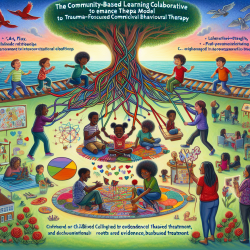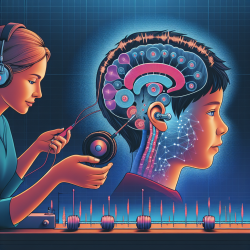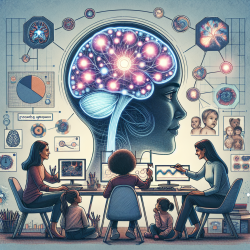Introduction
The debate surrounding Universal Grammar (UG) and the concept of a "phonological mind" has been a focal point in linguistic research for decades. In a recent article, "An Evaluation of Universal Grammar and the Phonological Mind," Daniel L. Everett challenges the traditional notions of innate phonological structures, arguing instead for a learned perspective on phonology. This shift in understanding has profound implications for practitioners in speech language pathology, particularly those working with children.
The Argument Against Universal Grammar
Everett's research critiques the idea that phonology is an innate human trait, as proposed by UG proponents like Noam Chomsky. Instead, he suggests that phonology, like other human abilities, is learned through cultural and environmental interactions. This perspective aligns with the observation that language acquisition varies significantly across different cultures and environments, challenging the notion of a universal linguistic blueprint.
Implications for Speech Language Pathologists
For practitioners in speech language pathology, embracing the concept of learned phonology offers a data-driven approach to language therapy. By understanding that phonological skills are acquired rather than innate, therapists can tailor interventions to the unique cultural and environmental contexts of each child. This personalized approach can lead to more effective therapy outcomes, as it considers the child's background and experiences in language learning.
Encouraging Further Research
Everett's findings also underscore the importance of ongoing research in speech language pathology. By investigating how different cultural and environmental factors influence phonological development, practitioners can develop more nuanced and effective therapeutic strategies. This research-driven approach not only enhances the field's understanding of language acquisition but also empowers therapists to make informed decisions in their practice.
Practical Applications
- Customized Interventions: Develop therapy plans that consider the child's cultural and linguistic background, allowing for more targeted and effective interventions.
- Collaborative Learning: Engage with parents and educators to create a supportive language learning environment that reflects the child's everyday experiences.
- Continuous Education: Stay informed about the latest research in phonological development to refine and enhance therapy practices continually.
Conclusion
By shifting the focus from innate phonological structures to learned phonology, speech language pathologists can better address the diverse needs of children in their care. This approach not only aligns with current research but also fosters a more inclusive and effective therapeutic environment. To delve deeper into this transformative perspective, I encourage practitioners to explore the original research paper, An Evaluation of Universal Grammar and the Phonological Mind.










